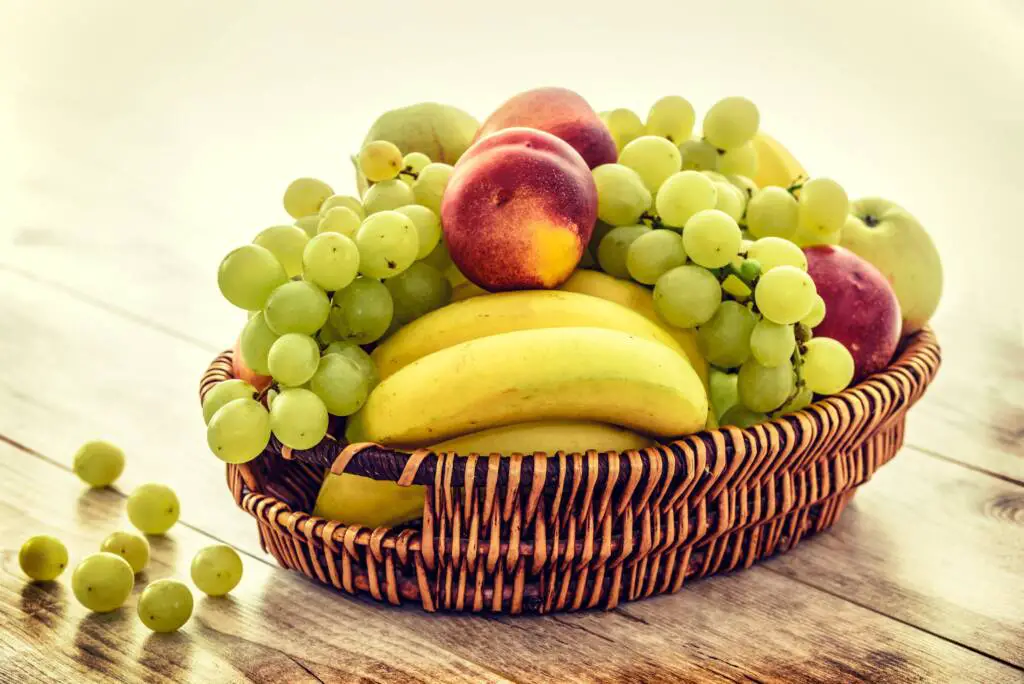Optimal Connective Tissue Nutrition

Welcome to the world of ligaments, the connective tissues that play a crucial role in supporting joint mobility and stability. These fibrous bands of tissue connect bones to each other, providing the necessary support for movement and daily physical activities. It is essential to pay attention to the health of our ligaments as they directly impact our overall well-being. In this article, we will delve into the mysteries of ligaments and explore the impact of diet on their strength and flexibility. Join us as we uncover the secrets to nourishing these vital structures for optimal connective tissue nutrition.
Understanding Ligaments and Connective Tissues
Ligaments are a type of connective tissue that plays a crucial role in supporting joint mobility and stability. They are strong bands of fibrous tissue that connect bones to each other and provide structure and stability to our bodies. Collagen, a ligament protein, is essential for maintaining their strength and flexibility.
Proper collagen production is necessary for the maintenance of strong and elastic ligaments. It is important to maintain a healthy balance between collagen and other nutrients, such as vitamin C, zinc, and omega-3 fatty acids, for optimal connective tissue health.
A diet lacking in these nutrients can have a detrimental effect on connective tissue integrity and lead to issues such as ligament injuries and joint pain. Therefore, it is important to understand the impact of diet on ligament health and focus on incorporating collagen-boosting foods into our meals.
The Impact of Diet on Ligament Health
The food we eat plays a crucial role in the health of our ligaments. Collagen, the main component of ligaments, is heavily influenced by our diet. A diet lacking in essential nutrients like vitamin C, zinc, and omega-3 fatty acids can lead to weakened ligaments and compromised connective tissue integrity. These nutrients are responsible for supporting collagen production and maintaining the strength and flexibility of ligaments.
To ensure optimal ligament health, it is important to include collagen-boosting foods in our diet such as bone broth, fish, and leafy greens. These foods provide the necessary building blocks for collagen production. In addition, incorporating elasticity-promoting nutrients like vitamin E, hyaluronic acid, and sulfur can enhance ligament flexibility. Making conscious dietary choices and avoiding processed foods can go a long way in maintaining strong and healthy ligaments. It is crucial to remember that long-term dietary habits have a significant impact on connective tissue integrity.
Collagen-Boosting Foods for Ligament Strength
Packed with essential amino acids, collagen is a crucial component of ligaments and plays a vital role in maintaining their strength and elasticity. Including collagen-rich foods in your diet can help boost production of this important protein and support ligament health.
Some examples of foods that are naturally high in collagen include bone broth, fish, and leafy greens. Bone broth, made from simmering animal bones, is a rich source of collagen and can easily be incorporated into soups, stews, and other dishes. Fish, such as salmon and tuna, contain high levels of collagen and also provide omega-3 fatty acids, which have anti-inflammatory properties that can aid in joint health. Leafy greens, such as kale and spinach, are not only packed with collagen, but also provide other important nutrients like vitamin C, which is essential for collagen synthesis.
To boost collagen production and support ligament health, aim to incorporate these foods into your daily diet. You can also add collagen supplements, which are available in powder or capsule form for an easier and more convenient way to increase collagen intake. With consistent consumption of collagen-boosting foods, you can help strengthen your ligaments naturally and support healthy joints.
Elasticity-Enhancing Nutrients for Joint Flexibility
Elasticity is a crucial factor in maintaining the flexibility of our ligaments, which are responsible for connecting bones and supporting joint mobility. Along with collagen, certain nutrients play a significant role in enhancing the elasticity of connective tissues.
Vitamin E, known for its antioxidant properties, helps in protecting and strengthening ligaments. Foods rich in vitamin E include sunflower seeds, almonds, and spinach.
Hyaluronic acid is a vital component of ligaments and helps in maintaining their elasticity. It can be found in bone broth, soy products, and leafy greens.
Sulfur is another nutrient that plays a role in the production of collagen and maintaining ligament elasticity. Foods high in sulfur include garlic, onions, and cabbage.
Incorporating these elasticity-enhancing nutrients into our diet can help improve the flexibility of our ligaments and support optimal joint function. Along with a collagen-rich diet, make sure to include these nutrients for strong and healthy connective tissues.
Maintaining Ligament Health Through Diet
In addition to specific nutrients and foods that support ligament health, maintaining a well-rounded and balanced diet is crucial. This means incorporating a variety of nutrient-dense foods into your meals, including lean proteins, colorful fruits and vegetables, healthy fats, and whole grains. These foods provide the necessary vitamins, minerals, and antioxidants to support collagen production and overall connective tissue health.
It is also essential to develop long-term dietary habits that prioritize the consumption of whole, unprocessed foods and limit the intake of processed and sugary foods. These dietary choices play a crucial role in sustaining ligament health and preventing damage to connective tissues.
In addition to diet, other lifestyle factors such as regular exercise, stress management, and proper hydration also contribute to maintaining strong and flexible ligaments. By making conscious dietary choices and incorporating these measures, you can support your ligament health and improve overall physical well-being.
Additional Measures for Ligament Maintenance
In addition to a diet rich in collagen-boosting and elasticity-enhancing foods, there are other measures that can support and maintain optimal ligament health. These include regular exercise, stress management, and proper hydration.
Exercise is crucial for maintaining ligament health as it helps to strengthen the muscles surrounding the joints, providing necessary support and stability. It also promotes blood flow, which aids in delivering essential nutrients to the ligaments.
Stress management techniques, such as meditation and deep breathing, can also positively impact ligament health. Chronic stress can lead to inflammation and hinder the body’s ability to produce collagen, so managing stress levels is important for overall connective tissue integrity.
In addition, staying hydrated is key to maintaining ligament health. Water helps to keep the connective tissues lubricated and prevents stiffness and joint pain.
Avoiding processed and sugary foods is also important for ligament maintenance. These foods can contribute to inflammation, which can weaken the ligaments and lead to joint pain and stiffness.
Incorporating these additional measures along with a collagen-rich diet can help to maintain strong and flexible ligaments, ensuring optimal joint mobility and stability. Remember to make conscious dietary and lifestyle choices for long-term ligament health.
Conclusion
In conclusion, the health of our ligaments is crucial for maintaining overall physical well-being. These connective tissues play a vital role in supporting joint mobility and stability. As we discussed, our diet significantly impacts the production of collagen and other nutrients. These nutrients are necessary for strong and flexible ligaments. You can support the integrity of your connective tissues by adding collagen-boosting foods to your meals. You can also add elasticity-enhancing nutrients. It is also important to maintain a well-rounded and balanced diet. Other lifestyle measures, such as regular exercise, are important for sustained ligament health. Stress management is also important for ligament health. Remember to prioritize hydration and avoid processed foods as well. You can nourish your ligaments. It will support optimal connective tissue health for years to come. You can do this by making conscious dietary choices.
https://7thavewellnessblog.com/?p=3406
https://en.wikipedia.org/wiki/Main_Page
FAQ’s
Q: What is connective tissue and why is its health important?
A: Connective tissue is a type of tissue that provides support and structure to the body. Its health is important for overall body function, as it supports organs, joints, and muscles, and plays a crucial role in wound healing and inflammation control.
Q: How does nutrition impact connective tissue health?
A: Nutrition plays a vital role in maintaining optimal connective tissue health. Specific nutrients such as collagen, calcium, magnesium, and glucosamine are crucial for tissue recovery, repair, and inflammation control.
Q: What are some key nutrients that support connective tissue health?
A: Key nutrients for connective tissue health include calcium, magnesium, glucosamine, and collagen. These nutrients support tissue growth, repair, and overall tissue health.
Q: What role does collagen play in connective tissue nutrition?
A: Collagen is a protein that provides structure to the body’s connective tissues such as tendons, ligaments, and cartilage. It is essential for maintaining tissue strength, flexibility, and resilience.
Q: How can good nutrition support tissue recovery and repair?
A: Good nutrition, including a balanced intake of nutrients like calcium, magnesium, and glucosamine, supports the body’s connective tissue recovery and repair processes, aiding in tissue growth and healing.








